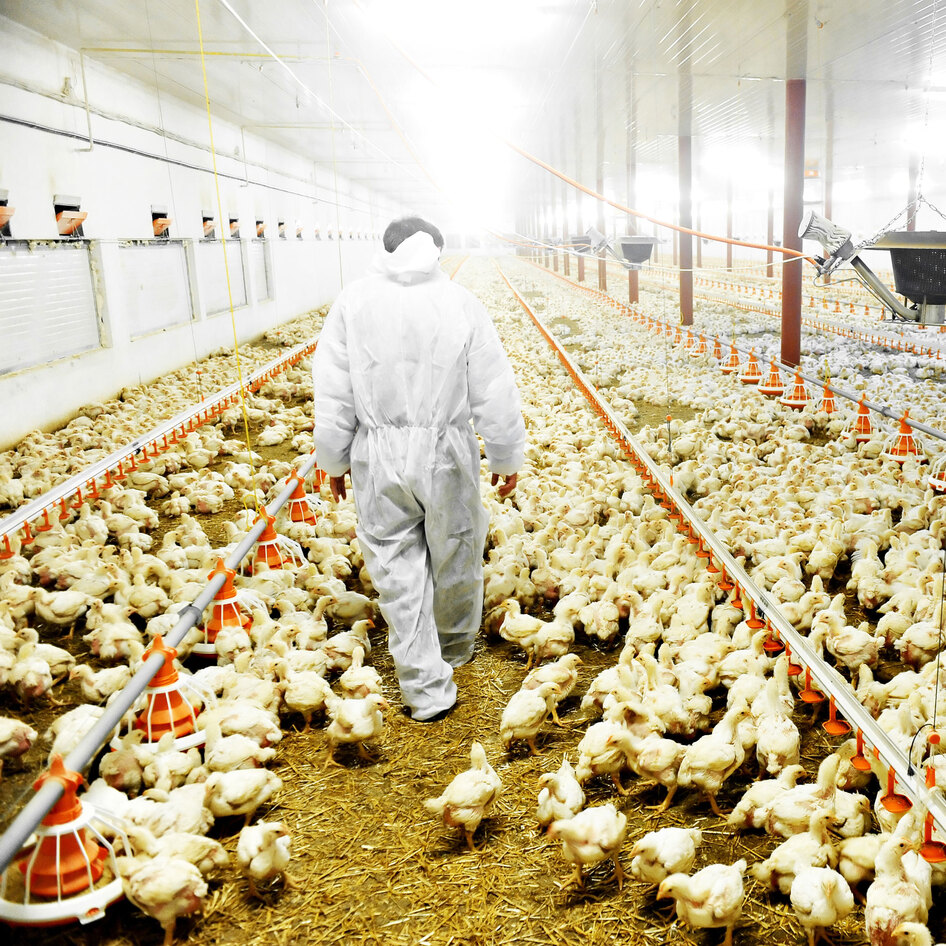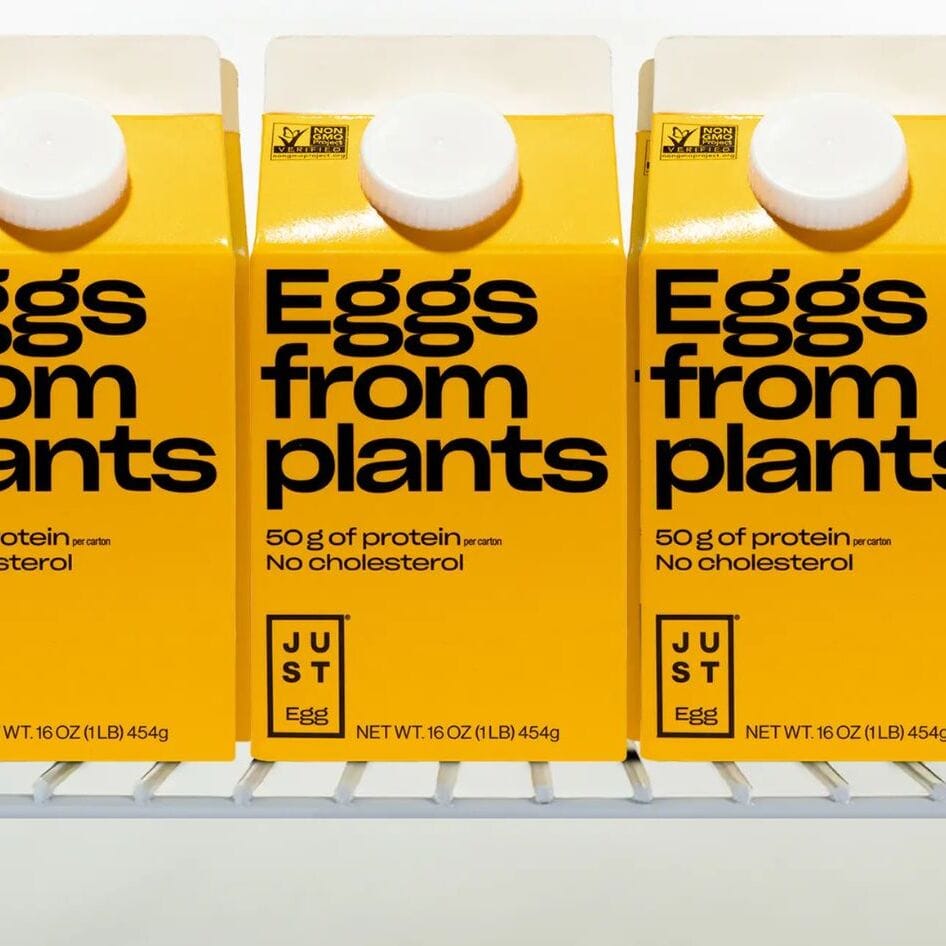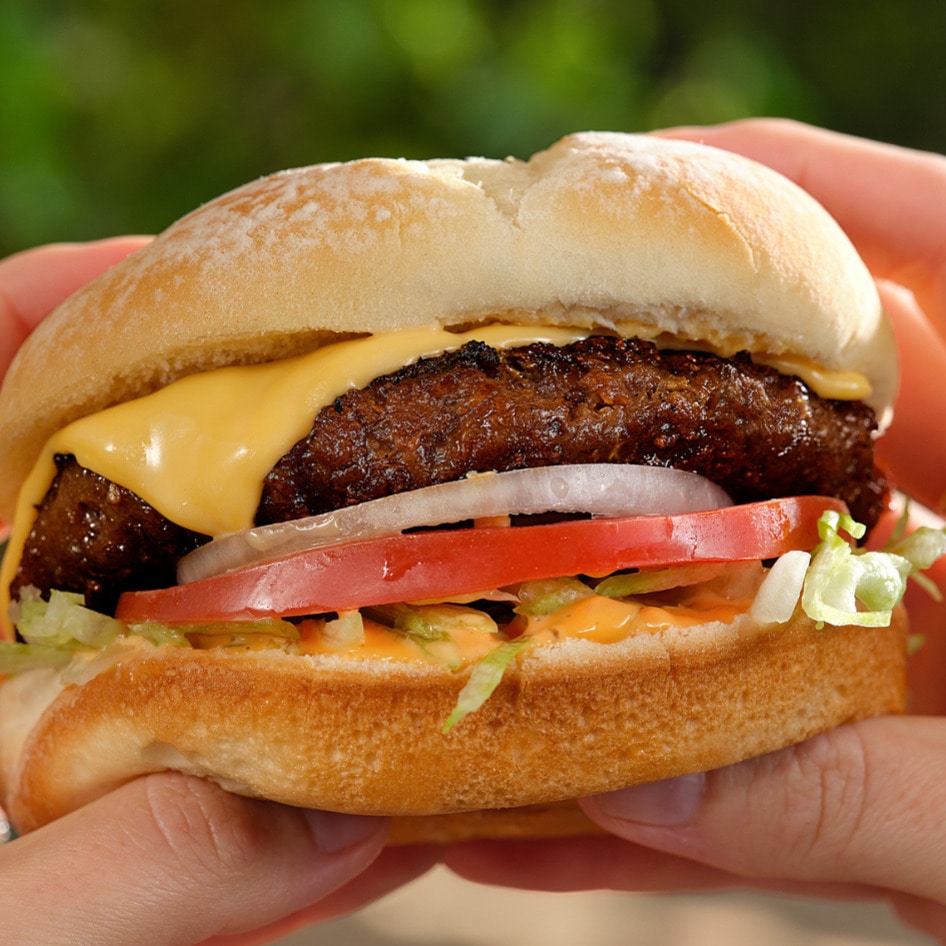The Animal Law Foundation, a collective of animal protection lawyers, recently reviewed nearly 50 producers of animal products, including dairy, eggs, chicken, turkey, pork, and lamb, and found that most used misleading imagery in their websites, products, and commercials.
The report, titled “Food Chain Misinformation,” suggested that more than 84 percent of producers represented animals outdoors, while more than 95 percent showed healthy-looking animals. More than 60 percent of producers also showed animals that were indoors in healthy, spacious conditions. The foundation also investigated nine major supermarkets in the UK, and found similar findings. All showed healthy animals outdoors on their websites, only three showed animals being raised inside.
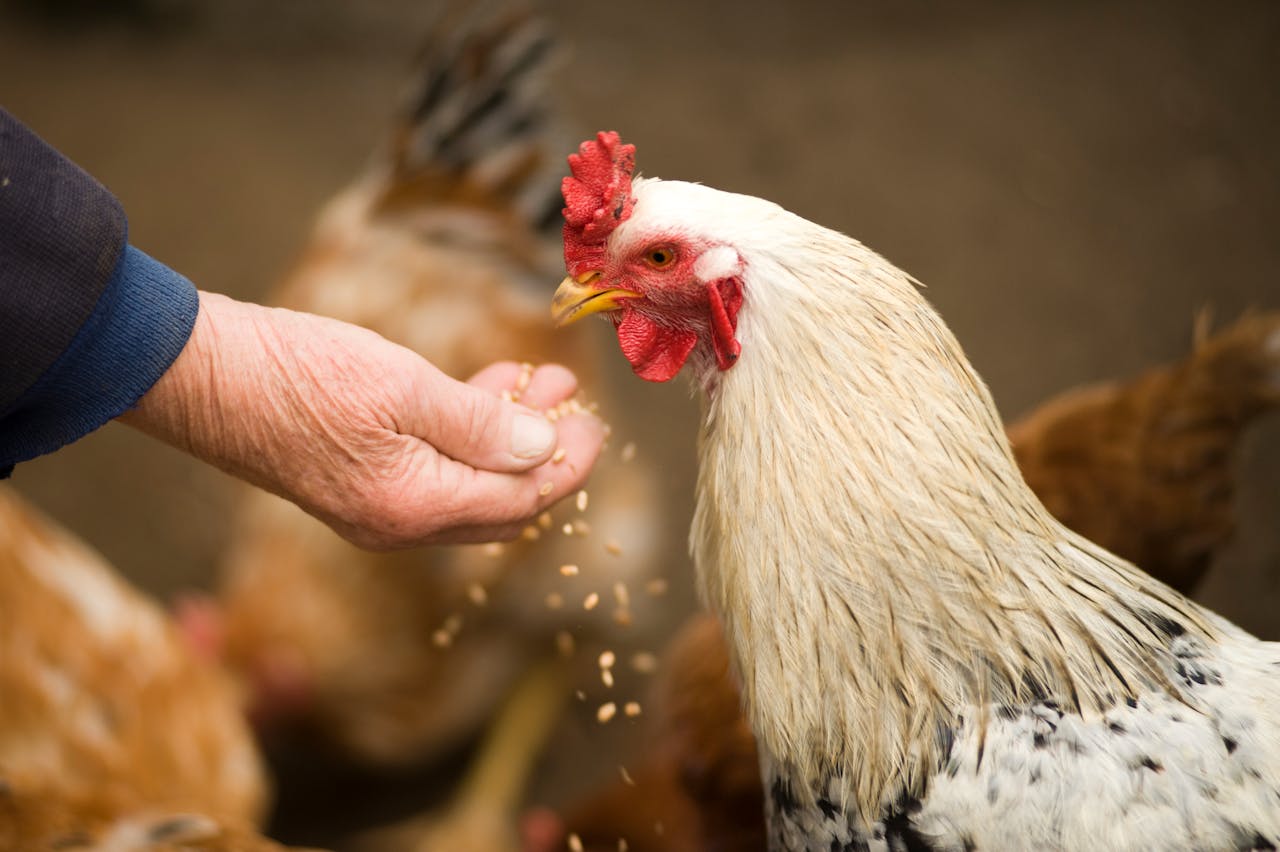 Pexels
Pexels
In reality, however, most animals in the UK are raised in cramped, industrialized conditions. According to Compassion in World Farming, more than a billion animals are raised in factory farms in the UK, which amounts to 85 percent of all of the country’s farm animals.
The report also found that several mainstream newspapers were contributing to the misrepresentation of animal welfare in the UK. Just over 16 percent of the images used by the country’s biggest publications showed animals in poor conditions, but most of these only referred to salmon farming, not land animals. On top of this, The Animal Law Foundation investigated 11 popular farming programs on mainstream channels, like BBC and Channel 4, and found that all showed animals grazing outside or free roaming.
“The reality for millions of animals is not what is reflected on the food market, where the dominant image for the public is of happy and healthy animals,” Edie Bowles, The Animal Law Foundation’s executive director, wrote in the foreword.
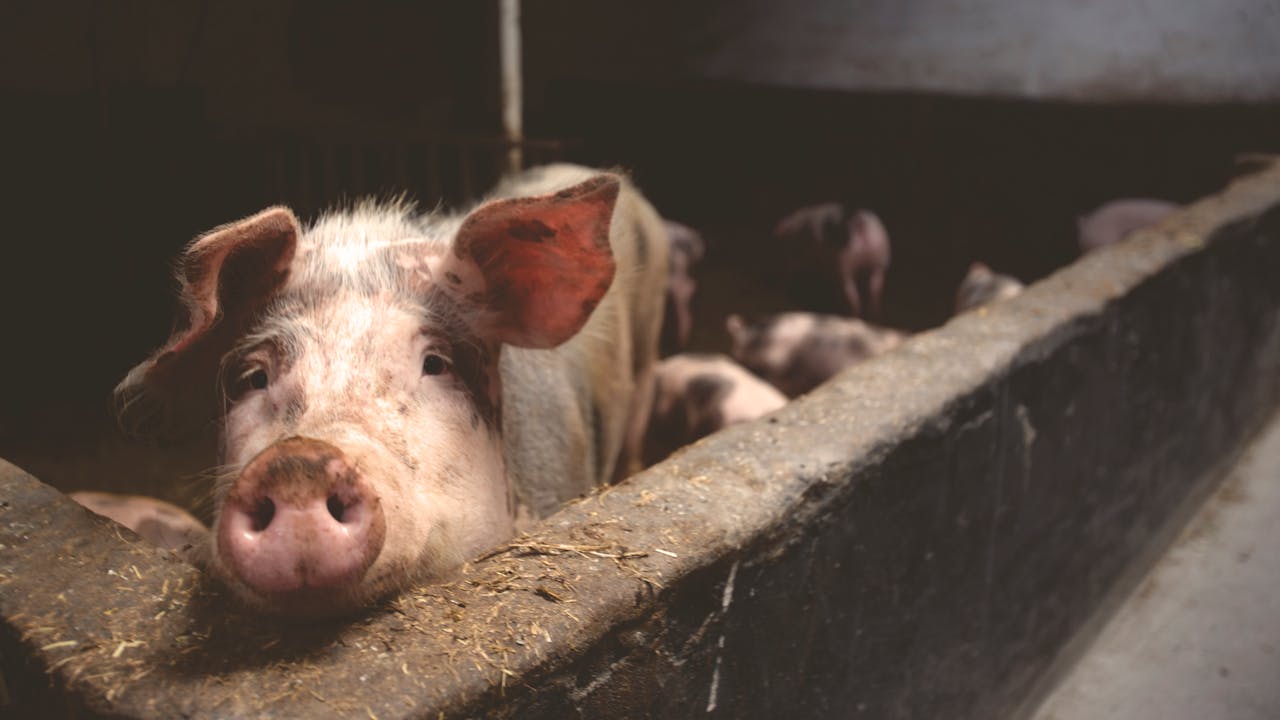 Pexels
Pexels
The global problem with ‘humane-washing’
The Animal Law Foundation focused its research on the UK, but this is a global problem. According to Greenpeace, the European Union is also home to 117,000 large mega farms. And in 2022, the US raised 7.2 billion chickens on mega factory farms.
And yet most suppliers of animal products do not accurately represent the conditions that animals are living in, which misleads consumers’ purchasing decisions. In 2021, one survey by food marketing firm C.O.nxt found that claims about animal welfare and “natural” products persuaded more than half of American consumers to purchase products. Per The Animal Law Foundation, nearly three-quarters of UK consumers also say they are highly concerned about animal welfare in food production.
Like greenwashing—which involves making misleading claims about a product’s environmental benefits—The Animal Law Foundation states that any brand, supermarket, or TV program that misleads companies about animal welfare is “humane-washing.”
“The high importance that consumers place on animal welfare is likely key to marketers’ decisions to present products as high welfare,” the foundation said.
The problems with these farms extend beyond animal welfare. Globally, animal agriculture is responsible for 14.5 percent of greenhouse gas emissions. It is also a leading driver of deforestation and habitat destruction all over the world.
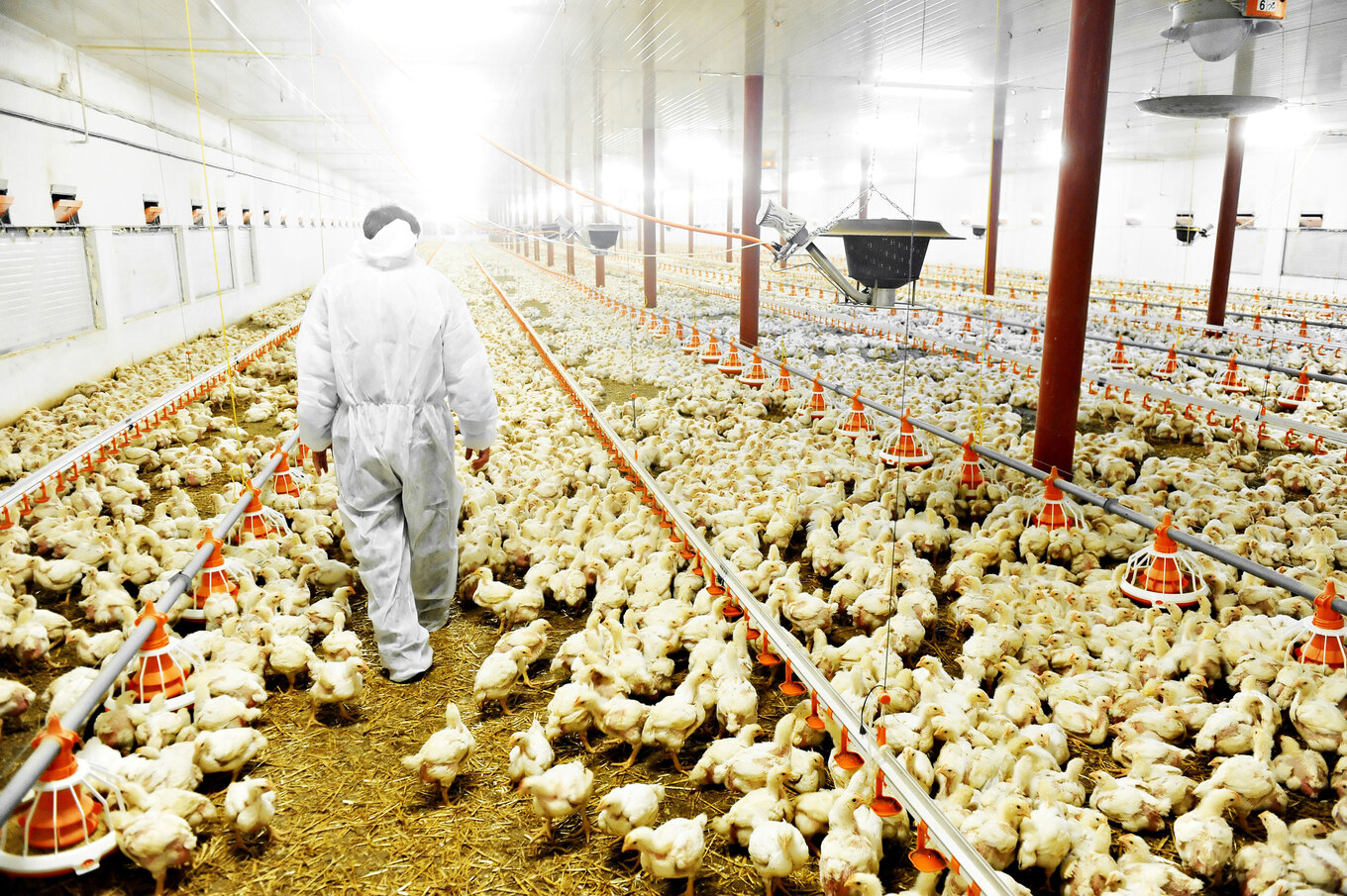 Adobe Stock
Adobe Stock
BECOME A VEGNEWS VIP: Get exclusive product deals, freebies, and perks galore!
On top of this, factory farms are a significant pandemic risk. Packing animals together in unhygienic conditions breeds and exacerbates the spread of disease, which poses a threat not just to the food supply, but to human health. Right now, experts are concerned that bird flu is only a few mutations away from spreading between humans.
For consumers, humane-washing gives an overall inaccurate picture of the type of system they are buying into.
“There is a serious concern that the way farmed animals’ lives are depicted and the way animal products are sold contribute to the prevalent impression that all farmed animals in the UK live in high welfare conditions,” the report states. “This type of content can be misleading to consumers and interfere with their purchasing decisions.”
For more plant-based stories like this, read:
JUMP TO ... Latest News | Recipes | Guides | Health | Subscribe



